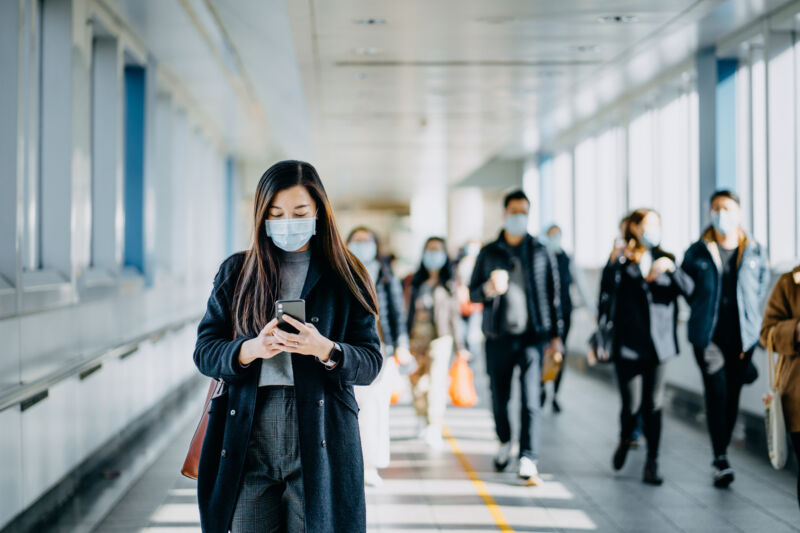Do masks work? It’s a question of physics, biology, and behavior

Enlarge / Asian woman with protective face mask using smartphone while commuting in the urban bridge in city against crowd of people (credit: d3sign via Getty Images)
On March 28, 2020, as COVID-19 cases began to shut down public life in much of the United States, then-Surgeon General Jerome Adams issued an advisory on Twitter: The general public should not wear masks. There is scant or conflicting evidence they benefit individual wearers in a meaningful way," he wrote.
Adams' advice was in line with messages from other US officials and the World Health Organization. Days later, though, US public health leaders shifted course. Mask-wearing was soon a pandemic-control strategy worldwide, but whether this strategy succeeded is now a matter of heated debate-particularly after a major new analysis, released in January, seemed to conclude that masks remain an unproven strategy for curbing transmission of COVID-19 and other respiratory viruses.
There's still no evidence that masks are effective during a pandemic," the study's lead author, physician, and epidemiologist Tom Jefferson, recently told an interviewer.